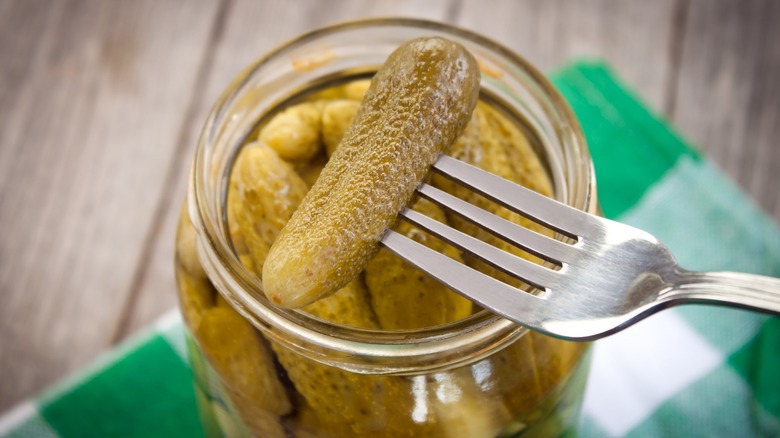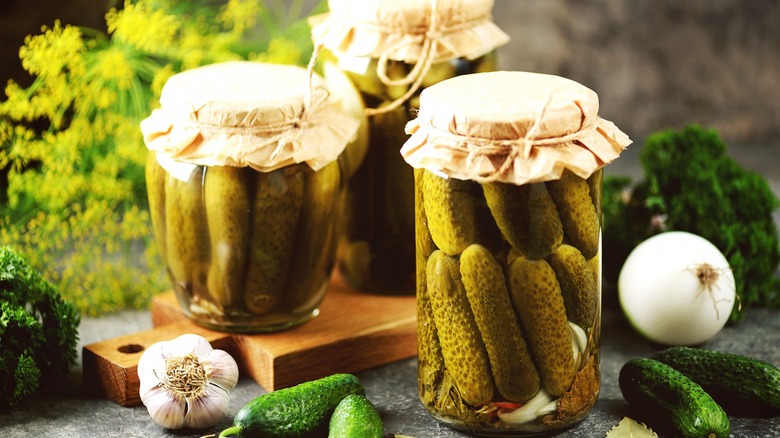It's A Mistake To Use Large Cucumbers When Making Pickles
If you bite into a homemade pickle and don't detect that signature crunch, something has gone amiss. One of the common mistakes everyone makes when making pickles is selecting the wrong cucumber. For the best, crunchiest pickles, size matters. But bigger cucumbers do not equal bigger pickle flavor.
You'll need a couple ingredients other than cucumbers to get started with your home pickling project. Pickling salt contains no additives, which can make your brine cloudy. It's also finer than regular salt, making it a better option for quickly dissolving into your solution. You want to select vinegar that has a 5% acidity. White distilled vinegar works well if you aren't sure what kind to purchase. While vinegar is the primary agent of flavor in pickles, you can also add fresh spices, but note that powdered ones will cloud the brine.
Because there's a science to pickling, you need to know what you're doing before launching into the process. That begins with selecting your pickles at the grocery store or farmers market.
Small cukes make the crunchiest pickles
Because cucumbers are in season in the summer, you're going to have the best variety to choose from between June and August. That doesn't mean you can't pickle all year. You can make pickles at home any time of year if you know which cucumbers to avoid.
It may seem to make sense to use bigger cucumbers in your pickling because you'll get larger pickles. However, large cucumbers have a much higher water content than smaller ones, and that extra water will give you soft, limp pickles. Larger cucumbers also have lots of seeds that can be unpleasant in a pickle. In the summer you'll find pickling cucumbers at farm stands. The term "pickling cucumber" refers to many different varieties of cucumber that make tasty pickles. Some of the more popular types are Gherkin, Cornichon, Kirby, and Bush cucumbers.
These cucumbers are small, about the size of a thumb, and you may only be able to find them in the summer. During other months, opt for mini English cucumbers. This variety has thin skin so the brine can really soak through. It also has a firm texture and small stature. If you do have a stash of large cucumbers on hand, scoop out the seeds and dice them up to make cucumber relish instead of pickles.

